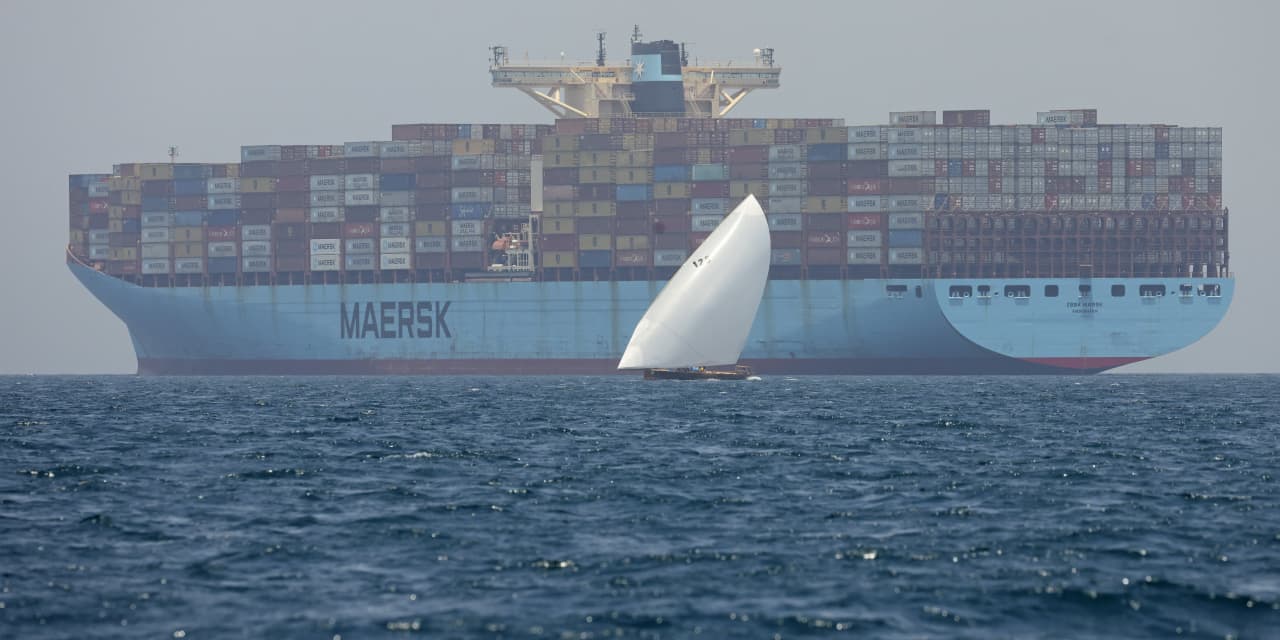The disruption caused by the Houthi attacks on Red Sea cargo ships could benefit the margins of freight-forwarding companies, says T.D. Cowen.
Freight-forwarding companies provide shippers with a range of services from routing to pickup and delivery. They stand to benefit from higher prices and surcharges amid as shipping companies attempt to bypass the Red Sea via alternative routes.
The sector includes Expeditors International of Washington Inc.
EXPD,
FedEx Corp.
FDX,
which provides air freight forwarding, United Parcel Service Inc.
UPS,
Supply Chain Solutions, and Deutsche Post AG
DHL,
-owned DHL Global Forwarding.
Cowen says the chances of near-term resolution to the Iran-backed Houthi attacks on merchant shipping in the Red Sea are low. “Europe-China ocean spot rates have jumped over 200% from 4Q; we believe the elongated disruption will benefit freight forwarders margins (higher pricing and surcharges) though unlikely to create severe supply chain disruptions,” the analyst firm wrote in a note released Monday.
Related: Retailers could suffer ‘perfect storm’ of Red Sea and Panama Canal disruption, says logistics expert
The Red Sea is a critical shipping lane for cargo traveling through the Suez Canal, which is said to account for about 12% of global trade. Approximately 30% of global container traffic traverses the Suez Canal, transporting $1 trillion of goods per annum, the government of New Zealand reported in 2021.
T.D. Cowen analyst Jason H. Seidl notes that ocean freight forwarders primarily assist shippers with freight consolidation, routing, contracts for ocean/air shipments, and pickup and delivery options. “Freight forwarders have contracts with the large air and ocean carriers (typically negotiate annual contracts) that predetermine rates based on expected volumes from shippers for different freight lanes,” he wrote in the note. “These contracts can often be amended through the year based on market conditions.”
“With ocean carriers now detouring around the Red Sea via the Cape of Good Hope (which adds 8-12 days from the Middle East, SE Asia to the Port of Rotterdam), pricing should be passed onto the shippers and is evident in ocean spot pricing in these affected trade lanes,” Seidl added. “Diverted and time sensitive freight should increase demand for freight forwarding services (including air) for shippers in the immediate term.”
Related: Slide in shipping group shares pared after they deny reports of deal with Houthi attackers
Last week, the United States and partner nations including Australia, Canada and the United Kingdom warned the Houthi rebel group against further attacks on Red Sea shipping. The Shia political group, which controls much of Yemen, has targeted cargo ships with a host of weaponry in recent months, including the first use of anti-ship ballistic missiles against such vessels. A sea drone attack was launched from Yemen just hours after the countries’ warning to the rebel group.
Houthi attacks in the Red Sea prompted shipping giant Maersk
MAERSK.A,
MAERSK.B,
to pause its transits through the shipping artery and the adjoining Gulf of Aden. On Friday Maersk said that it would be diverting its ships away from the Red Sea.
Related: Oil futures slump as Saudis cut prices
“The situation is constantly evolving and remains highly volatile, and all available intelligence at hand confirms that the security risk continues to be at a significantly elevated level,” the company said, in a statement. “We have therefore decided that all Maersk vessels due to transit the Red Sea / Gulf of Aden will be diverted south around the Cape of Good Hope for the foreseeable future.”
“We understand the potential impact this will have on your logistics operations, but please rest assured that all decisions have been carefully considered and ultimately prioritise the safety of our vessels, seafarers and your cargo,” the company added.
Read the full article here




